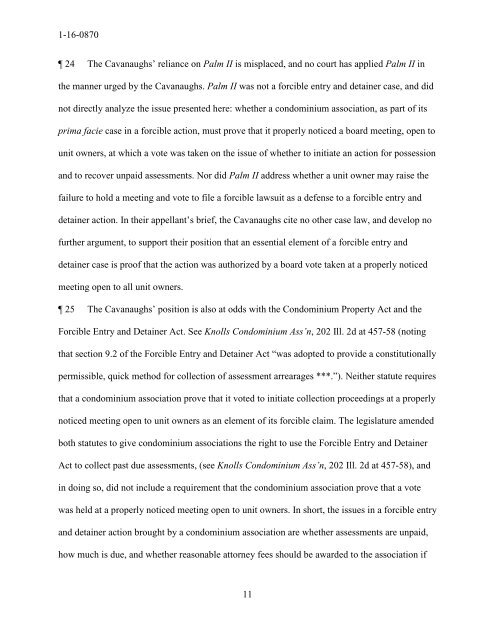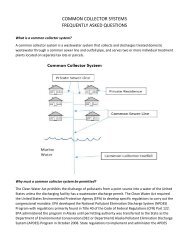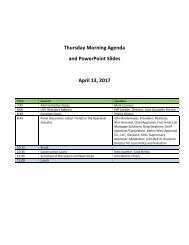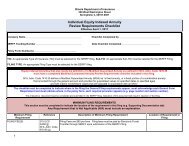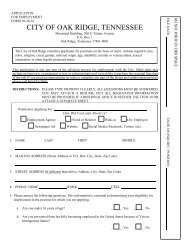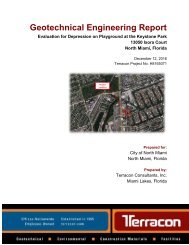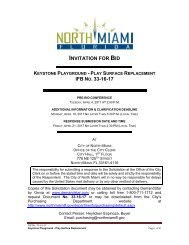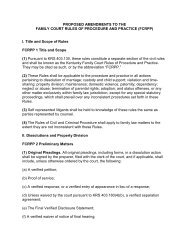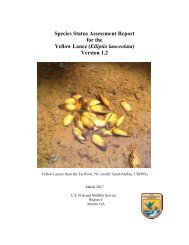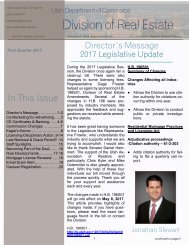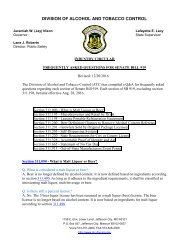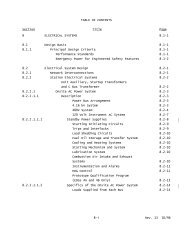1160870
1160870
1160870
Create successful ePaper yourself
Turn your PDF publications into a flip-book with our unique Google optimized e-Paper software.
1-16-0870<br />
24 The Cavanaughs’ reliance on Palm II is misplaced, and no court has applied Palm II in<br />
the manner urged by the Cavanaughs. Palm II was not a forcible entry and detainer case, and did<br />
not directly analyze the issue presented here: whether a condominium association, as part of its<br />
prima facie case in a forcible action, must prove that it properly noticed a board meeting, open to<br />
unit owners, at which a vote was taken on the issue of whether to initiate an action for possession<br />
and to recover unpaid assessments. Nor did Palm II address whether a unit owner may raise the<br />
failure to hold a meeting and vote to file a forcible lawsuit as a defense to a forcible entry and<br />
detainer action. In their appellant’s brief, the Cavanaughs cite no other case law, and develop no<br />
further argument, to support their position that an essential element of a forcible entry and<br />
detainer case is proof that the action was authorized by a board vote taken at a properly noticed<br />
meeting open to all unit owners.<br />
25 The Cavanaughs’ position is also at odds with the Condominium Property Act and the<br />
Forcible Entry and Detainer Act. See Knolls Condominium Ass’n, 202 Ill. 2d at 457-58 (noting<br />
that section 9.2 of the Forcible Entry and Detainer Act “was adopted to provide a constitutionally<br />
permissible, quick method for collection of assessment arrearages ***.”). Neither statute requires<br />
that a condominium association prove that it voted to initiate collection proceedings at a properly<br />
noticed meeting open to unit owners as an element of its forcible claim. The legislature amended<br />
both statutes to give condominium associations the right to use the Forcible Entry and Detainer<br />
Act to collect past due assessments, (see Knolls Condominium Ass’n, 202 Ill. 2d at 457-58), and<br />
in doing so, did not include a requirement that the condominium association prove that a vote<br />
was held at a properly noticed meeting open to unit owners. In short, the issues in a forcible entry<br />
and detainer action brought by a condominium association are whether assessments are unpaid,<br />
how much is due, and whether reasonable attorney fees should be awarded to the association if<br />
11


